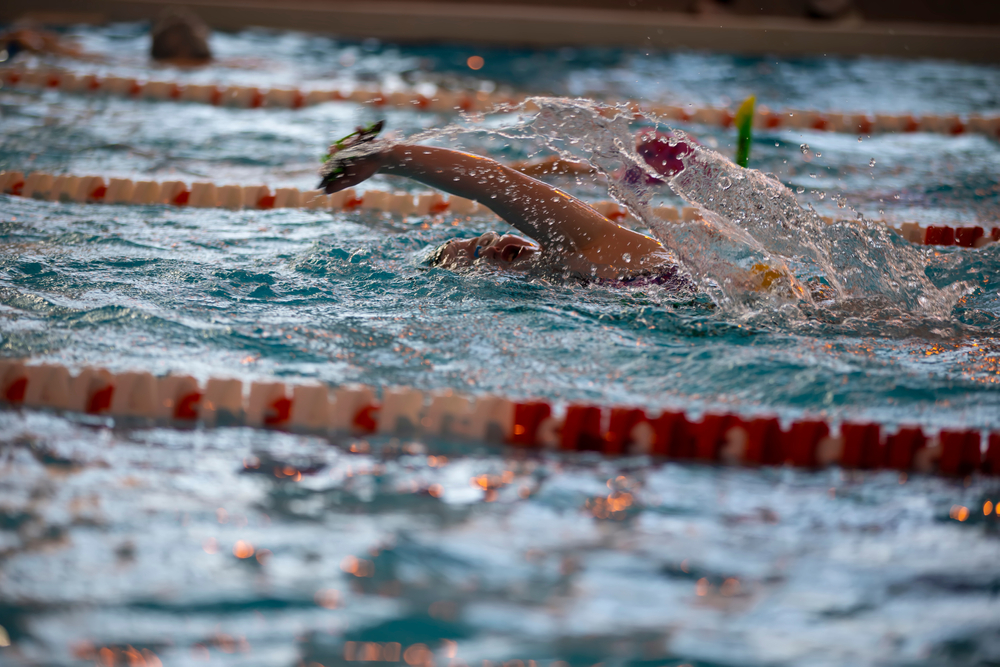Many life skills are optional, but there are also some skills everyone needs to survive. There is some debate over where swimming falls on that spectrum. Swimming enthusiasts say it is essential. Yet, some people never learn to swim. Most experts agree that swimming is not exactly essential for life, but it is certainly a beneficial skill. In fact, knowing how to swim can even save lives, including your own.
If you do not know how to swim, you may think it is too late to learn. You may also wonder if there really are benefits to doing so. People of all ages learn how to swim each day. In fact, there are swimming lessons specifically for adults available in many locations. When you are ready to get started, you need only find swimming lessons in your local area. The resources and facts about learning to swim below can help you get started.

Why is it Important to Learn How to Swim?
On average, 11 drowning deaths per day occur in the United States. Approximately 22 victims per day survive drowning incidents with assistance from lifeguards or other skilled individuals. Learning to swim does not prevent drowning. However, children under four who have had swimming lessons are 88 percent less likely to drown. Adults who know how to swim are also far less likely to drown.
In addition to lower risk of drowning, learning how to swim is also beneficial for health reasons. Swimming is an excellent source of exercise. It is also a sport that is far easier on the joints than many others, such as jogging. Swimming can help with weight loss. It is also particularly beneficial for individuals with certain illnesses, conditions, or injuries, including:
-
Asthma
-
Arthritis
-
Multiple Sclerosis (MS)
-
Insomnia
-
Stress or Mood Disorders
-
Pregnancy
How Can Knowing How to Swim Save Lives?
Swimming lessons save the lives of children in a variety of ways. Children who know how to swim are less likely to drown if they fall in pools, for example. Also, most formal swimming lessons teach methods of floating and teach children to ask for permission before swimming. Those techniques combined help to ensure children are more visible to adults when in the water.
Adults who take swimming lessons as children or in their adult years can save lives in many other ways. For example, an adult who knows how to swim is more capable of keeping his or her own children safe in the water. He or she may also help save other children or adults when water accidents occur. Adults who are trained swimmers are also more likely to survive or help other victims after boating accidents.
What Are Some Other Benefits of Knowing How to Swim?
Swimming is not only useful as exercise or a lifesaving skill. It is also excellent for building confidence in children and adults. Swimming provides a sense of accomplishment and comfort. Non-swimmers are often afraid of water-based activities. Swimmers do not have such fears.
Another important reason to learn to swim is it is often a secondary skill that is either necessary for a primary purpose or enhances it in some way. For example, a person does not need to know how to swim to ride on a boat but knowing makes the process safer. Swimming is also an important skill for people who enjoy water-based sports, such as surfing, canoeing, or kayaking.
Learning to swim also provides an extra platform for social interactions. Many students make friends while taking swimming lessons. Lesson graduates also often use swimming to make friends later in life. They may attend pool or beach parties frequently. Swimmers are also more likely to participate in water sports, which can allow them to build social bonds and learn to work in teams.
Where Can You Learn How to Swim?
If you want to learn how to swim, there are many places to do so. One place to check is your local public pool or beach. Often, courses are offered at such locations. Outdoor lessons are usually only available in the summer. However, indoor pools sometimes offer year-round lessons. You can also check the following popular swimming lesson resources for local lesson locations and times:
-
Your Local YMCA Branch Office
-
Your Local YWCA Branch Office
-
The Parks and Recreation Department in Your State
Another option is to enroll yourself or your child in lessons offered by a local organization. Some such organizations are charities created to provide free or affordable swimming lessons in specific areas. Others are private swimming schools. Such schools are typically designed to provide in-depth lessons with extra attention for each student. Sometimes lessons are offered individually. Other times enrollment in a group is necessary. Group classes are often conducted by age range or skill level.
What is the Average Cost of Swimming Lessons?
Some swimming lessons offered in the United States are free. When there is a charge, the average amount is approximately $20 to $60 per lesson. However, swimming lesson rates are influenced by factors like the duration of each lesson, the number of students, and the organization providing the lessons. Private lessons for single students are often more expensive than group lessons at public pools. Often, fewer private lessons are required than public lessons because private students receive individual attention. However, public lessons are equally as effective over time and may fit in your budget better.
How Long Does it Take to Learn to Swim?
The length of time and number of lessons it takes to learn to swim varies for everyone. Young children typically require more repetition and practice to remember what they have learned. Adults tend to learn faster. The exact length of time also depends on the duration and frequency of lessons. On average, an adult requires approximately 25 hours of lessons at the beginning level. Some instructors spread those lessons over an entire year. Others offer accelerated courses with multiple lessons per week.